A presentation exercise in a virtual assessment center is a highly interactive session that offers critical insights into participants’ expertise, experience and key professional competencies.

There are two major ways of administering a presentation exercise in various types of assessment centers:
Planned presentations
For planned presentations, candidates receive a topic on which they can prepare and present. To simulate real-world scenarios, assessors may sometimes demand last-minute changes or additions in a presentation.
Spot presentations
This twist in a typical presentation exercise is a great way of testing a candidate’s spontaneity and ability to cope with surprises. For spot presentations, assessors provide the candidates with a ready-to-use deck. The candidates are then expected to study and analyze the given information, draw conclusions and present their thoughts in an organized, logical manner.
Alternatively, assessors may also come up with a random topic on which the candidates are required to make a presentation using limited resources and a brief preparation time.
Competencies assessed
- Oral communication
- Ability to deal with repeated questioning
- Organization and planning
- Time management
- Creativity
- Professional style
- Patience
- Ability to perform under pressure









 Behavioral Competencies
Behavioral Competencies Cognitive Competencies
Cognitive Competencies Coding Competencies
Coding Competencies Domain Competencies
Domain Competencies
















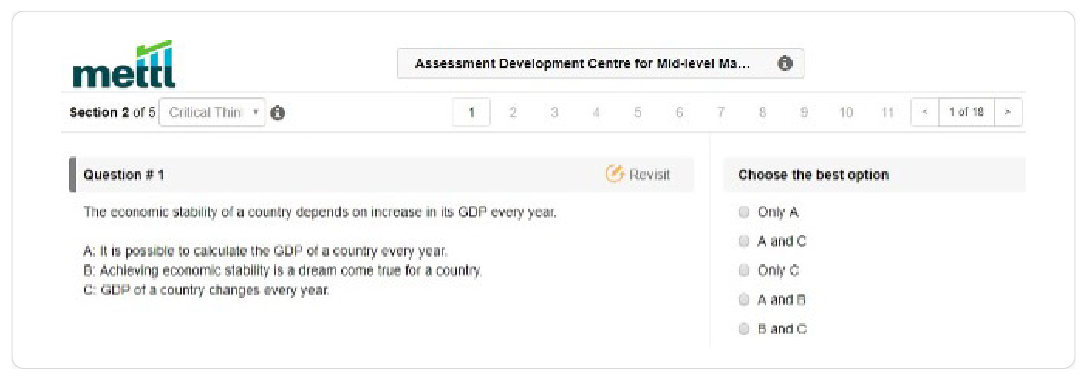
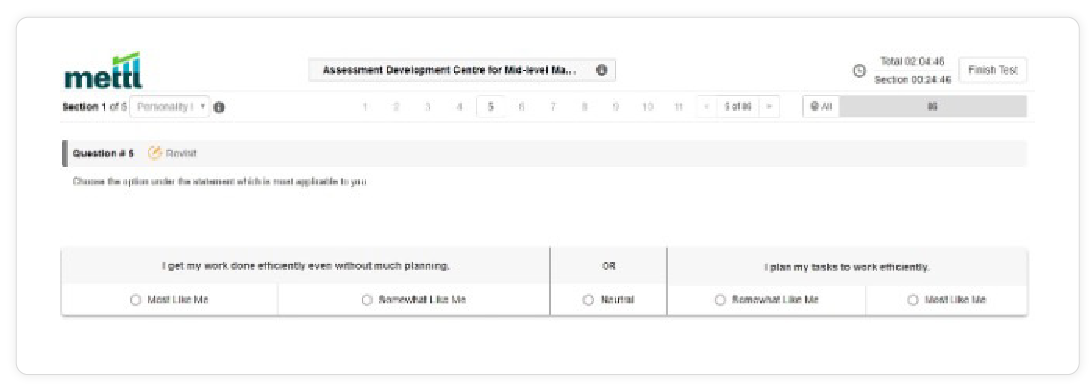


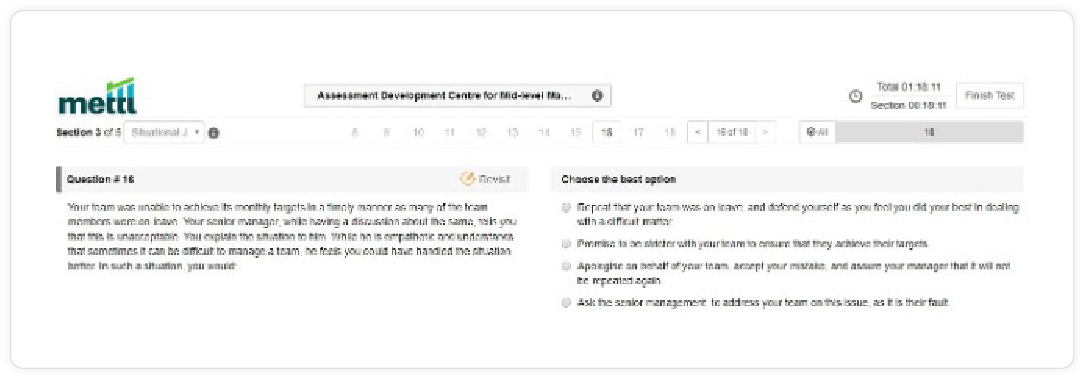





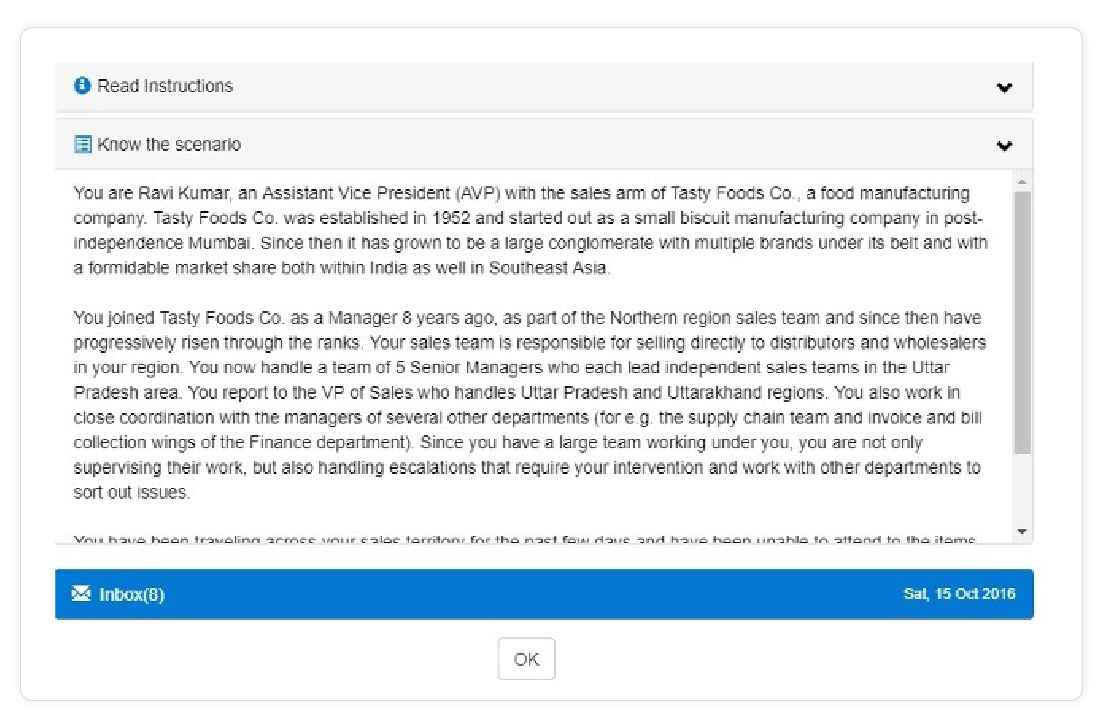


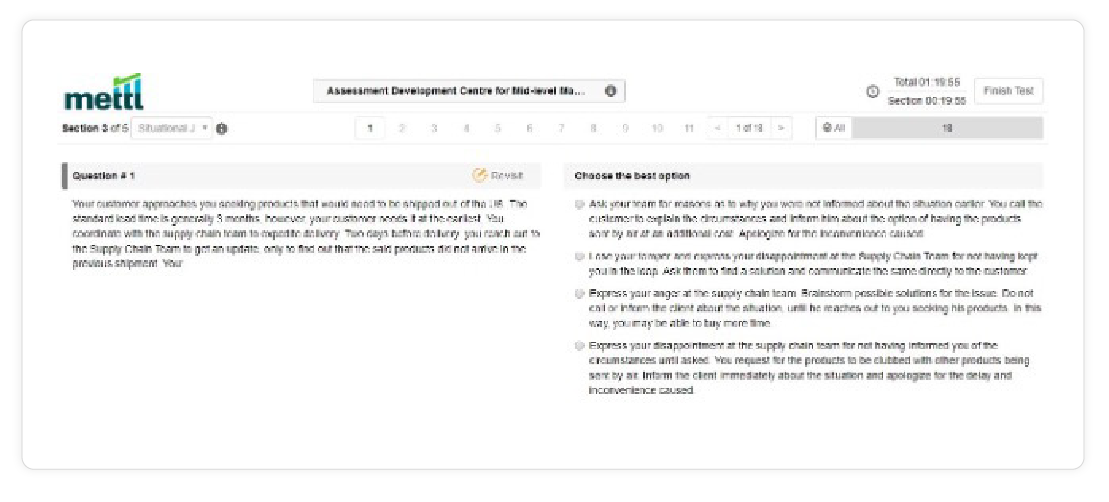












Would you like to comment?